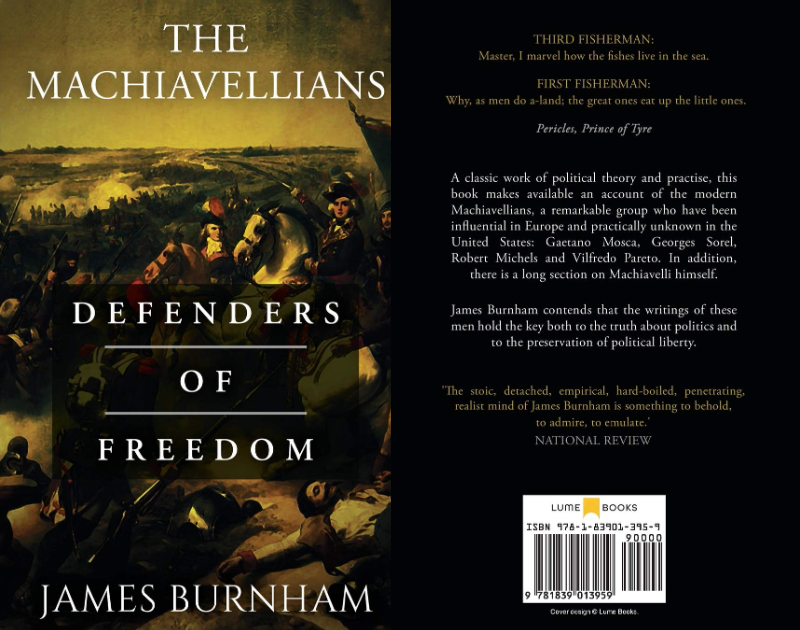
The Machiavellian school of thought is as provocative and as it is misunderstood. A quick internet search reveals numerous rebuttals and critiques. But most of these miss the underlying point of Machiavellianism. Simply put, it is the scientific study of the mass manipulation of people and society. Unlike most political thought, however, it focuses on what is instead of how things ought to be. Most critiques confuse this foundational distinction and complain that its advocates fall short of ideals.
A common misunderstanding is to conflate ‘the ends justify the means’ with Machiavellianism. This greatly distorts its analytical approach to politics. If you want to build a house, you use the science of building construction. A Machiavellian would have the same analytical, unemotional approach to politics. If you want a certain political outcome, you use the science of politics and the tools of mass manipulation.
Further complicating the picture is Machiavellianism in personal psychology. Many assume that practicing political Machiavellianism makes you psychologically manipulative, callous, and/or indifference to morality. That too is a misunderstanding. Machiavellian principals are a tool for accomplishing political goals, and you must judge the morality of the goals themselves, not the tools used. Just as TVs show any type of movie; you judge the movie for morality, not the tools used (i.e., the TV.)
The Machiavellians, Defenders of Freedom
The book, The Machiavellians, Defenders of Freedom, reviews the insights of thinkers throughout the ages including Machiavelli, Mosca, Sorel, Michels, and Pareto. It is a guided tour of these thinkers, presented in a coherent and easily consumable package. In the conclusion of the book, the author, James Burnham, voices his thoughts and insights. Unfortunately, the book starts slow but becomes interesting once it focuses on the various thinkers.
The book contains way too many insights and quotes to include in a typical review. I’ve collected over 40 different quotes that follow up posts will address. It is sufficient to say, that if you are interested in politics, this book is a must read. Even if you completely disagree with the author, it is important to understand the lessons by which the political system actually works. In it, Burnham details how democracy in any real sense is impossible. Equally important, the book explains why a ruling class is a universal feature of all organized societies, thereby showing that anarchy in any real sense is also impossible.
Burnham covers several other important topics as well. He shows how myth and violence function in politics. It is especially interesting how he reveals myth as something unobtainable and, at the same time, impossible to disprove (like equality to a communist.) The book also covers how groups of people act without logic/reason, especially with regards to politics. He examines the elite in great detail throughout the book, which is best summarized by the quote: “Political history and political science are thus predominately the history and science of ruling classes, their origin, development, composition, structure, and changes.”
Concordia, There Must be a Better Way
Virtually all of the points made by Burnham are address in Concordia, There Must be a Better Way, which effectively makes the book a Machiavellian novel. From harshly criticizing democracy and political elites to the importance of myth and violence, the novel is a provocative adventure to help visualize an alternative to the social democratic consensus. If you enjoy Burnham’s books, then you’ll surely like Concordia too.
Recommended Reading
Support my blog by sharing this post or subscribing to my newsletter. You may also support my blog with the purchase of one of these excellent books, all written by James Burnham. I get a tiny commission from each purchase, but only if you buy using one of the links below.
You might also enjoy some of my other book reviews.

















